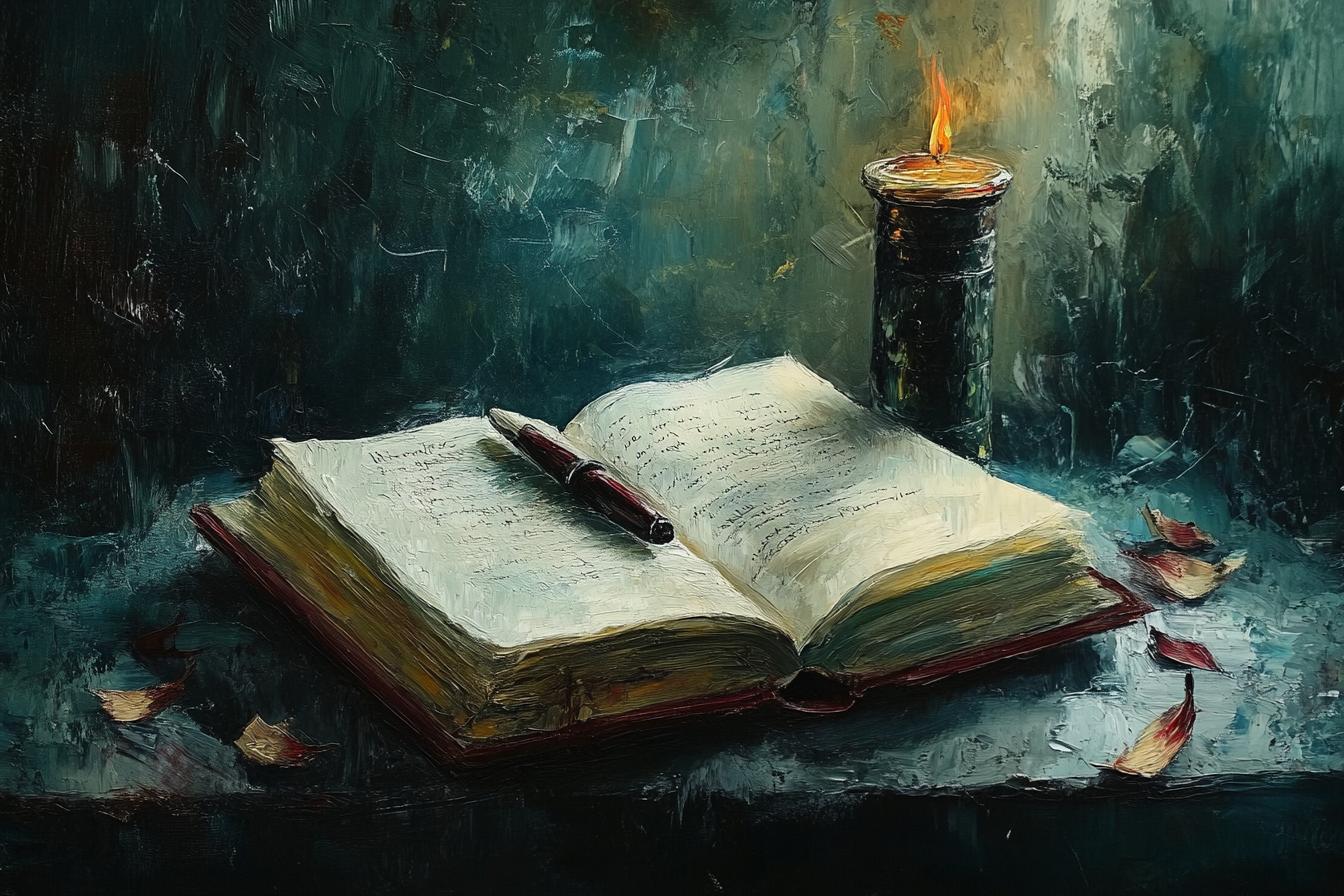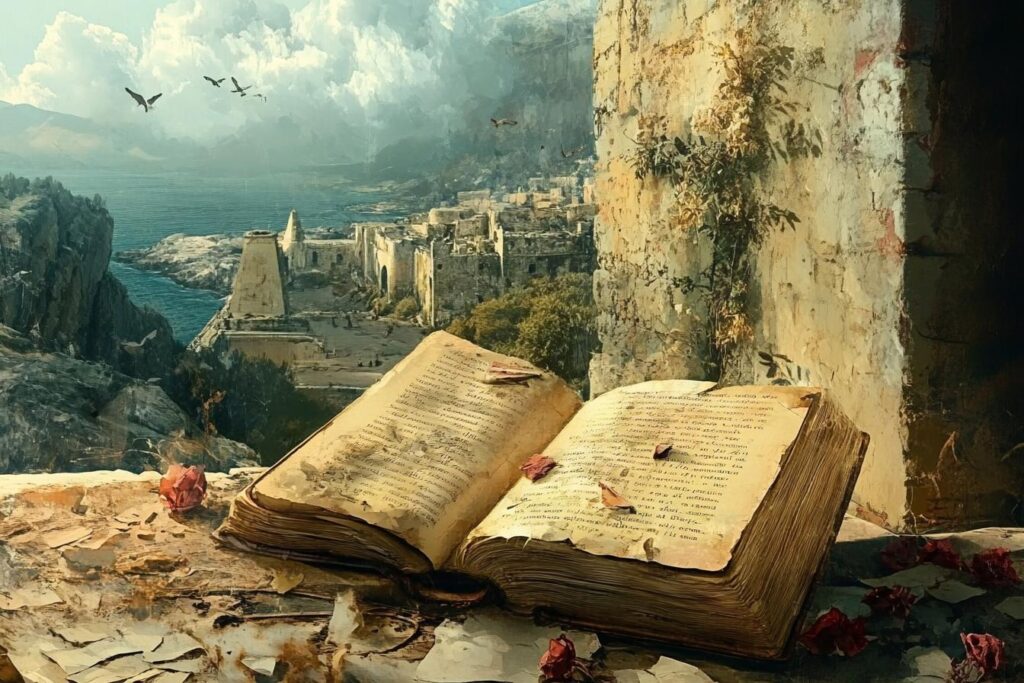Poetry, with its rhythmic language and evocative imagery, has been used to explore the human experience for centuries. As a result, certain themes appear repeatedly across poems, reflecting our shared anxieties, joys, and experiences. Love, a timeless theme, is often explored in its various forms – romantic, familial, platonic, and even self-love. Poems about love can be passionate and celebratory, or melancholic and bittersweet, reflecting the complexities of human connection. Similarly, nature, with its beauty and power, is a recurring theme in poetry. From the delicate details of a flower to the vastness of the sky, nature provides a rich tapestry of metaphors and symbols for poets to explore.
Beyond love and nature, other prominent themes in poetry include loss and grief, mortality and the passage of time, the search for meaning and identity, and social and political issues. For example, poems about loss often explore the emotional rollercoaster of grief, from initial shock to eventual acceptance. Poetry can also offer solace and comfort to those experiencing loss, reminding them that they are not alone in their pain. The universal human experience of grappling with the inevitability of death is another recurring theme, often explored through metaphors and symbolism. Through these recurring themes, poetry provides a powerful lens for understanding the complexities of the human experience, offering both solace and reflection.

1. What Are the Most Common Themes in Poetry
Poetry, with its ability to evoke powerful emotions and explore profound ideas, often revolves around recurring themes that resonate deeply with readers. These themes encompass the human experience, from the simple joys and sorrows of daily life to the grander questions of existence. Some of the most common themes in poetry include love, loss, nature, time, and mortality. These themes are explored in diverse ways, from the romantic musings of a love poem to the existential angst of a sonnet about death. Each poet brings their unique perspective and voice, weaving these universal themes into their own artistic tapestry.
Beyond these fundamental themes, poetry also delves into the complexities of human relationships, social injustices, and the search for meaning and purpose. Poets often use metaphors, imagery, and symbolism to explore these ideas in a way that transcends the limitations of everyday language. By delving into these common themes, poetry invites readers to engage with the world in a new and profound way, fostering empathy, understanding, and a deeper appreciation for the human condition.
2. Love and Loss
Love and loss are two sides of the same coin, inextricably linked in the human experience. Poets frequently explore these themes, delving into the profound emotions that accompany love’s presence and the ache of its absence. They examine the joys and sorrows of romantic love, the complexities of familial bonds, and the enduring power of friendships. Through powerful imagery and evocative language, poets capture the bittersweet nature of love, showcasing its capacity for both immense joy and crushing pain.
Loss, in its various forms, provides a fertile ground for poetic exploration. Poets often grapple with the death of loved ones, the end of relationships, and the passage of time, reflecting on the fragility of life and the permanence of loss. They delve into the grief, anger, and acceptance that accompany loss, providing solace and understanding for readers who have experienced similar heartache. The exploration of love and loss in poetry offers a universal language, connecting readers through shared human experiences and offering a cathartic release for emotions that words alone cannot express.
3. Nature and Beauty
Nature and beauty are inseparable companions in poetry, often intertwined in a harmonious dance. Poets frequently draw inspiration from the natural world, using vivid imagery and sensory details to capture the essence of beauty. Whether it’s the delicate petals of a flower, the majestic peaks of a mountain, or the shimmering surface of a lake, poets celebrate the awe-inspiring grandeur and delicate intricacy of the natural world. Through poetic language, they invite readers to experience the beauty that surrounds them, fostering a deeper appreciation for the interconnectedness of humanity and nature.
Beyond the physical beauty of nature, poets often explore the deeper meanings and symbolism embedded within the natural world. The changing seasons, the cycle of life and death, the resilience of trees weathering storms – all these elements serve as metaphors for the human experience. Poets use nature as a lens to examine themes of love, loss, hope, and despair, finding parallels between the natural world and the complexities of human emotion. The beauty of nature, then, becomes a catalyst for introspection, allowing poets to delve into profound philosophical and existential questions.
4. Human Condition
The human condition, with its inherent complexities and contradictions, is a recurring theme in poetry. Poets often explore universal experiences like love, loss, joy, sorrow, and mortality. They delve into the complexities of human relationships, the search for meaning, and the struggle to reconcile individual desires with societal expectations. Through vivid imagery and evocative language, poets illuminate the shared struggles and triumphs that define the human experience.
Furthermore, poetry often explores the nature of consciousness, the passage of time, and the impact of our actions on ourselves and others. Poets grapple with the fleeting nature of life, the inevitability of death, and the search for meaning in a world that can often feel chaotic and unpredictable. By reflecting on these profound themes, poetry helps us to understand ourselves and our place in the world. It offers a space for contemplation, empathy, and a deeper appreciation for the human journey.
5. Time and Mortality
Time’s relentless march and the inevitability of death are themes that have captivated poets throughout history. These concepts, intertwined and inseparable, inspire profound reflections on the human condition. Poets explore the fleeting nature of life, the ephemeral beauty of the present moment, and the enduring legacy we leave behind. From the poignant lamentations of lost love to the stoic acceptance of mortality, poets grapple with the passage of time and its impact on our experiences, relationships, and ultimate fate.
The awareness of our limited time fuels a yearning for meaning and purpose. Poets often delve into the complexities of our existence, questioning the purpose of life and the significance of our actions. They explore the desire to leave a mark on the world, to create something lasting that transcends the limitations of time. The confrontation with mortality prompts an exploration of our values, our priorities, and the legacy we wish to leave behind.
6. Identity and SelfDiscovery
Poetry often explores the complexities of identity, the journey of self-discovery, and the search for meaning in a world that can feel overwhelming. Poets use their words to delve into the inner lives of individuals, revealing their struggles, triumphs, and evolving sense of self. From coming-of-age narratives to explorations of cultural heritage, the theme of identity provides a rich tapestry for poets to weave their thoughts and emotions.
Through vivid imagery, powerful metaphors, and poignant reflections, poets illuminate the challenges and joys of understanding oneself. They examine the impact of family, society, and personal experiences on individual identity formation. They also celebrate the unique qualities and experiences that make each person distinct. These poems often grapple with questions of belonging, acceptance, and the ongoing process of self-definition.
Conclusions
So, there you have it! We’ve explored a bunch of common themes that poets love to dig into. From the rollercoaster of love and loss to the awe-inspiring beauty of nature, poets use these themes to reflect on the human experience. They grapple with the big questions about our place in the world, the fleeting nature of time, and the search for our own identity. Whether you’re a seasoned poetry fan or just starting to explore the world of verse, understanding these themes can help you connect with poems on a deeper level.
Ultimately, poetry is all about exploring the human experience in all its messy, beautiful, and complex glory. So the next time you pick up a poem, consider the themes it explores and see what resonates with you. You might just find yourself surprised by the insights and connections you discover!

